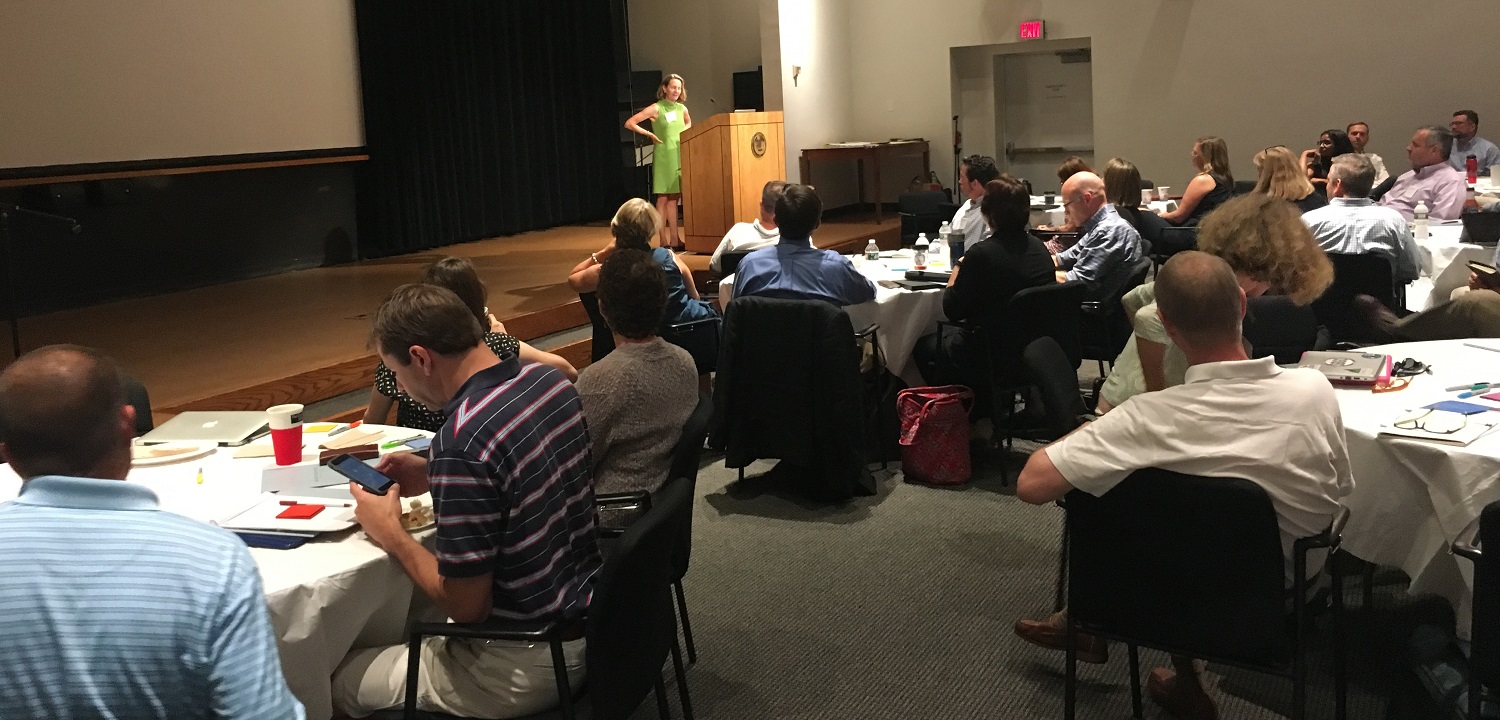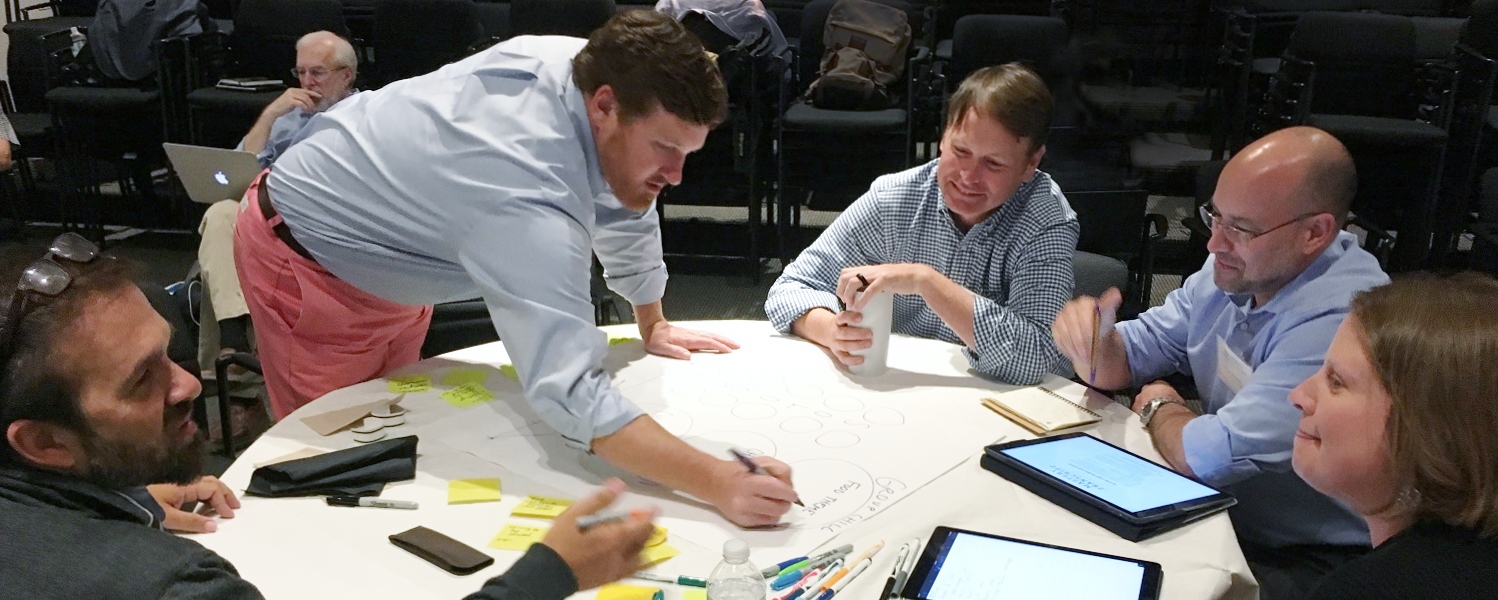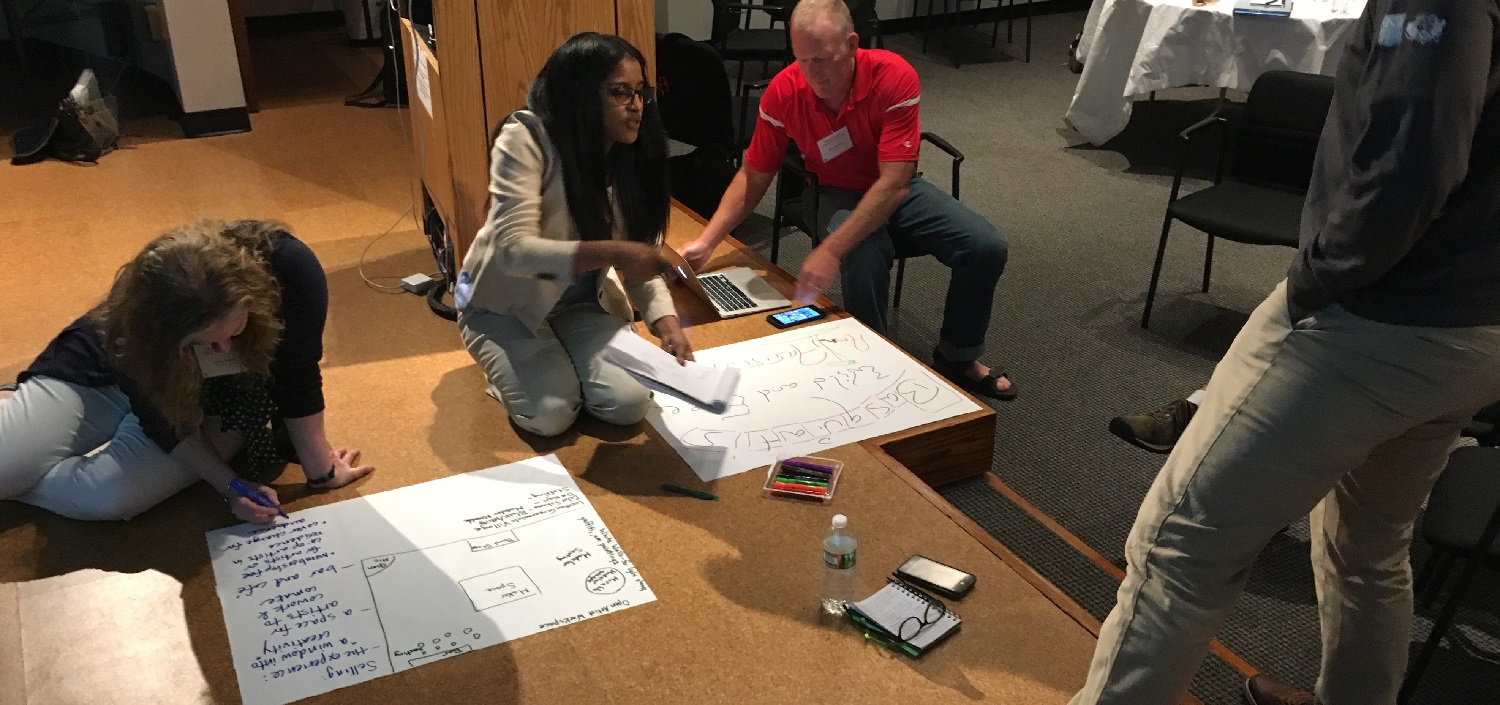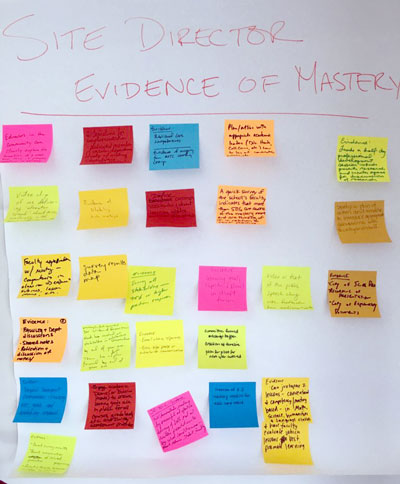Already a member? Log in to the Member Site at members.mastery.org.
Meet New ‘CPO’ Mike Flanagan
September 14, 2017
Executive Director Search Launches
October 3, 2017First Site Director Meeting Brings Ideas, Energy


Site directors from schools throughout the country convened to discuss first steps in the effort to provide a new high school transcript
“What knowledge, skills, and dispositions do you want every student to walk across the stage possessing? And for what purposes?” asked Dr. Kevin Mattingly, motioning toward a slide on the screen titled “Teaching and Learning, Essential Questions.”

“This is a movement based upon students and authored by teachers,” said Scott Looney, founder and board chair of MTC, as he welcomed site directors. “Teachers will determine the skills, knowledge, and character traits that students should master. It’s incredibly exciting.”
Working Together

A site director has ongoing responsibility for preparing and guiding the faculty and school community in discussions, planning efforts, decision-making, and eventually in the transition to use of the Mastery Transcript if the school chooses to do so.
“This is a big moment for the MTC,” said Hudson. “Site directors play a critical role in beginning these conversations in earnest at their schools, and we want these workshops to be a hands-on way for them to begin to understand mastery credits and the teaching and learning practices that underlie their use.”
One of the workshops, titled “Being Students,” engaged site directors in a design challenge: they had to imagine and pitch a brick and mortar café for Spotify. After presenting their pitches, each group gathered to reflect upon what skills they had exercised and what “evidence” they might submit if they were students demonstrating those skills.

Other sessions included developing slides for online presentations to heads of school about the pedagogy that underlies the Mastery Transcript and what some of the next steps may be. They also discussed how to talk to various constituents within their school communities, based upon individual needs and goals. Ideas they came up with on how to connect with students, for instance, included “inviting students into conversation to write MTC criteria in small and large discussion groups” and reaching out to their families through small social events. With faculty and other school staff the possibilities centered on hosting lively discussions about topics such as the science of learning, workshops about change management, and various professional development opportunities.
“The meeting was one of the best professional development seminars that I have attended in my career as an administrator, and I am eager to reconvene,” said Angela McKenzie, a site director and assistant head of school at Woodlawn School. “The focus on deeper learning and how we can make that the focus in our schools is essential to 21st century learning. It was inspiring to brainstorm with like-minded individuals who are ready for more innovation that captures the strengths and accomplishments of each individual student.”
Looking to the Future
As site directors enter this first year of communicating the MTC concept back to their schools, Mattingly advised them to “Learn, strategize, and watch early pilot schools. Don’t try to do too much.”
Members of the MTC team encouraged the same, seeing the development and implementation of the new high school transcript as a long-term, multi-phased effort that will involve work, such as:
- Gathering input from independent and public school colleagues, as well as from college admission officers;
- Conducting platform development and testing with cohorts of students and faculty;
- Shaping finer points, such as how schools can customize Mastery Credits based upon their own school culture while keeping the format consistent and readable to admissions officers in under two minutes.
Mattingly noted that MTC is poised to be a game-changer, with great potential to transform the existing, 120-year-old paradigm of teaching, assessing, and crediting. The MTC currently has about 130 member schools signed on to the effort, with new members joining regularly.
“Together we are focused on making the transcript process better for students,” said Patricia Russell, interim executive director of MTC. “This effort is a marathon, not a sprint. We are looking seven to 10 years out right now.”
Learn More
The next Site Director meetings will take place at Catlin Gabel in Portland, and Lake Forest Academy near Chicago, with additional meetings being planned throughout the year. Current Site Directors may request to be added to the MTC Facebook community. If your school is not currently a member but is interested in joining, please get in touch. For more information on MTC, please visit mastery.org.
Photo Credit: Images courtesy of Global Online Academy




